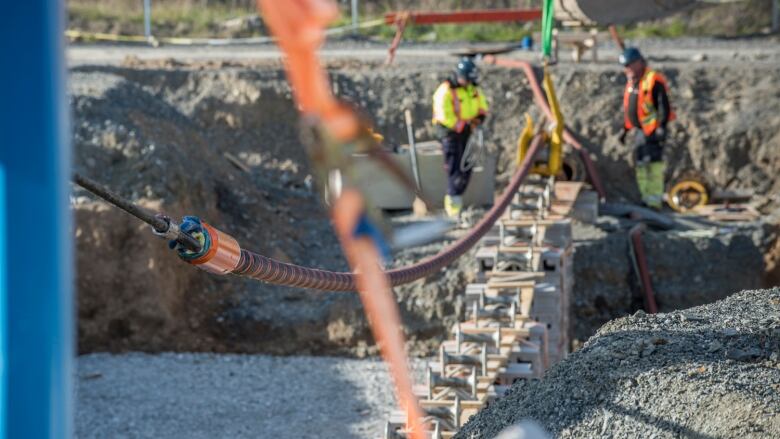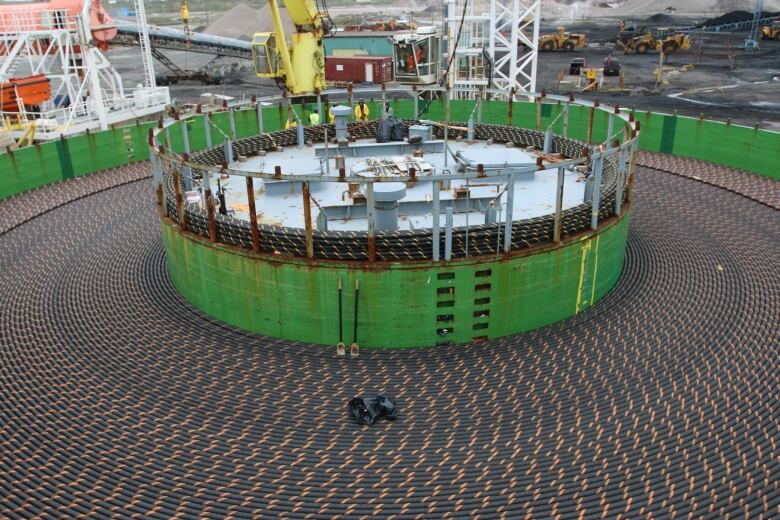Emera offers customers temporary $102M reprieve for Maritime Link
NSP Maritime Link has been criticized for wanting to charge ratepayers $326M before link delivers as planned

Emera Inc. is offering to charge Nova Scotia Power customers $102 million less for the Maritime Link project before it delivers electricity as planned but it wants to recoup those savings later.
Customers would see the temporary reduction as an annual credit on their bills starting at the end of 2017, 2018 and 2019.
NSP Maritime Link, a subsidiary of Emera, has been criticized for attempting to charge ratepayers $326 million for the hydro transmission project two years before it actually delivers the electricity for which it was built all while Emera reaps a nine per cent rate of return amounting to about $100 million.
Return funds to customers
The company said it would delay the recovery of $51 million per year in depreciation costs in 2018 and 2019 that it was seeking. Instead, it proposes returning those funds to consumers. Depreciation would be collected by customers at a later date.
The offer to lower the ask is contained in NSP Maritime Link's opening statement filed ahead of regulatory hearings next week.

The hearings will look at an application for rates to pay for the Maritime Link a $1.7-billion transmission system being built to carry hydro electricity from the Muskrat Falls project in Labrador across Newfoundland and into Nova Scotia via a 170-kilometre subsea cable.
Company responding to concern
Rates cannot be lowered because of Nova Scotia government legislation that has frozen power rates, said NSP Maritime Link.
"Therefore while established electricity rates must collect the funds and those rates cannot be changed until 2020, with the board's approval [Nova Scotia Power] is able to return the funds to customers annually through an on-bill credit," the statement said.

The statement does not provide any detail on what that credit would mean to an average customer.
The company said its offer is an attempt to address what it calls "the intergenerational inequity concern."
Ratepayers' loss, shareholders' win
The company has repeatedly pointed out that its portion of the transmission system will be ready on time by the end of 2017 and it is not to blame for construction delays by partners that have put the overall project years behind schedule.
The argument gets short shrift in the opening statement of the province's electricity consumer advocate who objected to NSP Maritime Link's request to earn "full and complete returns for its shareholder even though no Muskrat Energy will flow over the link until at least 2020."
"NSP Maritime Link]'s proposal to have the risks and consequences of construction delays thrust solely onto ratepayers is unfair," consumer advocate lawyers John Merrick and Bill Mahody said in the written submission.
Hearings start June 12
Public hearings at the Nova Scotia Utility and Review Board on how to finance the Maritime Link are scheduled to begin Monday and run all week.

Prior to its last-minute offer, NSP Maritime Link was seeking approval to charge ratepayers $162 million in 2018 and $164 million in 2019.
Intervenors and the board's experts have largely agreed that NSP Maritime Link and Emera should absorb some of the costs for the two-year period when Maritime Link is unable to deliver the electricity for which it was built.












_(720p).jpg)


 OFFICIAL HD MUSIC VIDEO.jpg)
.jpg)



























































































